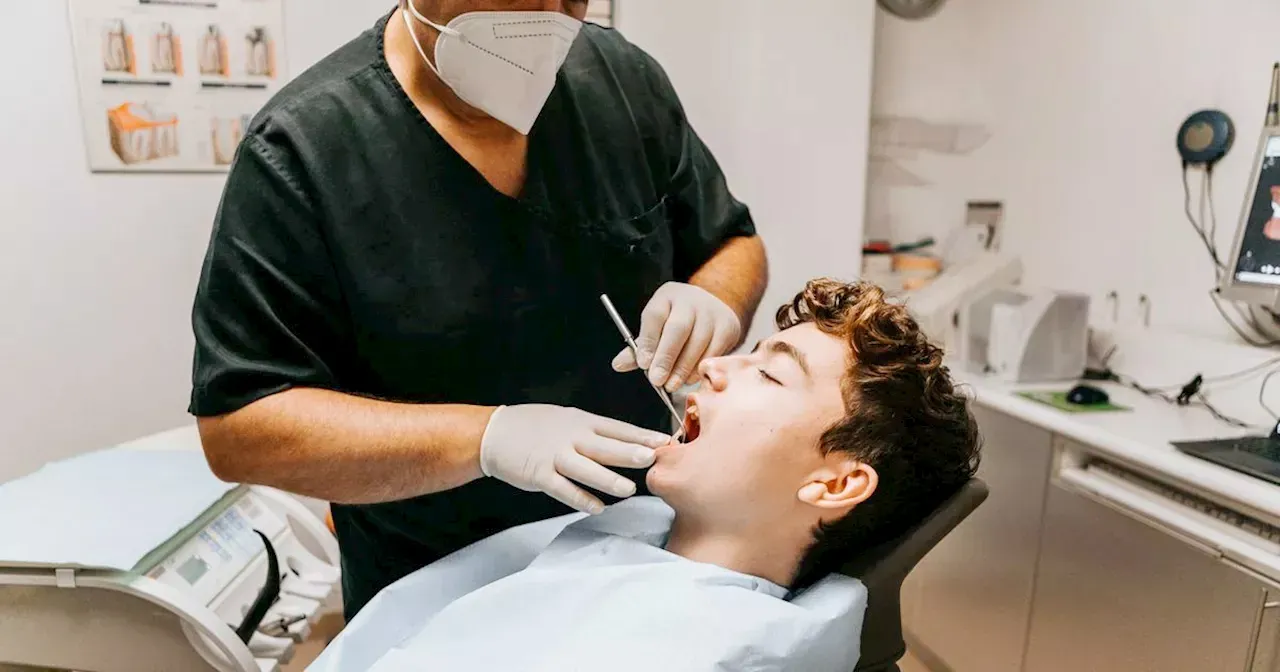
While the onset of developmental milestones varies from child to child, the age when baby teeth fall out is particularly broad. On average, kids’ teeth fall out at 6-years old. But some parents start playing tooth fairy for kids as young as 4, while others may need to wait until their child turns 9.
Orthodontist Dr. Kami Hoss, the founder of The Super Dentists, assures parents that there’s little to worry about if their child ends up on the latter end of the spectrum. “If all teeth are delayed, there could be several reasons,” he notes.“The primary would be genetics, and it’s usually ok if teeth are universally and sequentially delayed in falling out.”
The first teeth to fall out are ordinarily the lower incisors (front central), followed by the upper incisors, primary molars, lower canines, and finally the upper canines. Those 20 baby teeth are replaced by 20 permanent teeth, and over the next few years, the jaw grows enough to make space for 12 additional permanent teeth.
Dr. Hoss says that, unlike permanent teeth, a dentist wouldn’t look to put the tooth back in. “With baby teeth, once it falls out we would look to see if we would need to do a partial or just leave it as-is.”
To ensure your child’s teeth are as healthy as possible and to prevent any problems that may occur, Dr. Hoss suggests parents use the “1, 4, 7” method as they plan their child’s oral healthcare.
“No later than one-year-old to see the dentist for the first time. No later than four to stop bad oral habits such as thumb sucking. And no later than seven to see the orthodontist ensure there is room for all of the permanent teeth to come in,” Hoss explains.
Early visits to the dentist allow kids to be evaluated using the American Dental Association’s Caries Risk Assessment, which can help dentists alert parents to any possible issues. The American Academy of Pediatric Dentistry notes that “In addition to the caries assessment, the dentist will address any growth and development issues that may be specific to a particular child, such as the delayed eruption of teeth or rare structural abnormalities or habits that may predict future needs.”
An abnormally long delay in the loss of baby teeth could be a sign of something that a dentist or orthodontist would want to catch early. According to Dr. Hoss, the most likely culprits would be supernumerary teeth (extra teeth that are there that prevent permanent teeth from coming in), or teeth with roots that are anchored against another tooth and don’t allow a permanent tooth to come in.
With so many developmental milestones for parents to track, losing baby teeth isn’t one that needs to take up much mental bandwidth. The permanent teeth will make sure they have room to come in when the time is right, and if it looks like they won’t then your dentist will be able to tip you off ahead of time.
This article by Christian Dashiell was originally posted on Fatherly.com on 4/1/21.









